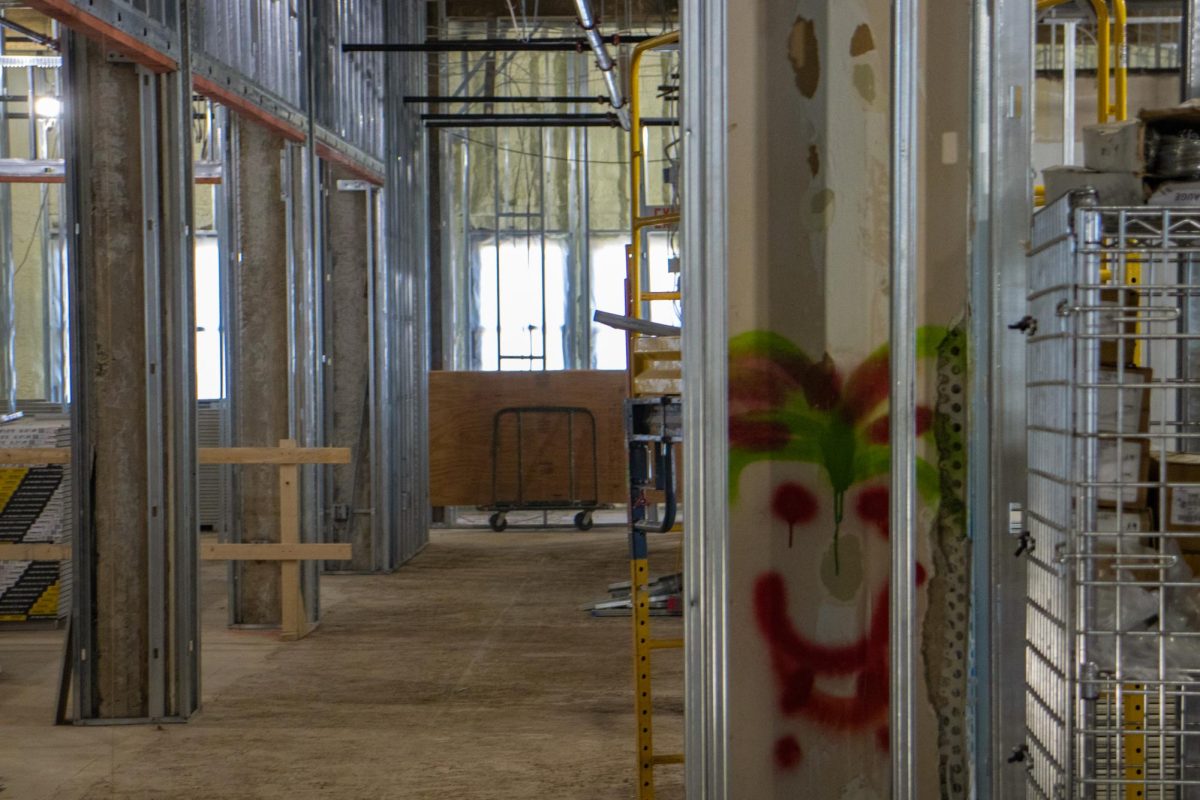Writing on the walls
January 8, 2015
*Trigger warning*
American University students are reminded of sexual assault every time they pee.
Stickers on bathroom stalls outline resources for sexual assault survivors. These university-designed stickers never refer to anyone as a victim.
According to the Office of Campus Life’s website, the “Sexual Assault Information Stickers,” as they are officially called, were last updated in fall 2013. In most cases, these stickers are untouched.
But sometimes, messages are written on the stickers in women’s bathrooms that attempt to comfort sexual assault survivors. Presumably if a woman reads the stickers closely, she may have been a survivor of a sexual crime.
“You are important, valued and loved,” one author wrote in pink, inside the first floor women’s bathroom in AU’s School of International Service.
These kind words are also a form of social media. They are a public discussion, with writers interacting with their audience.
Merriam Webster defines social media as “forms of electronic communication through which users create online communities to share information, ideas, personal messages, and other content,” but some have a broader definition.
“Social media is more than online communication and is centuries older too,” School of Communication Professor Scott Talan wrote in an email. “Martin Luther publicly defied the Church with his theses which was then spread by others by pamphlets, song and readings. This was a lot more aggressive than a Facbook poke or share.” According to Talan, even cave paintings fall into the category, as the oldest social media.
Some of the bathroom messages mention Daniel Rappaport, AU’s sexual assault prevention coordinator. “See Daniel Rappaport at the wellness center,” is written in the Ward women’s bathroom on the terrace level.
Rappaport says the stickers are effective, particularly in referring students to the Sexual Assault Nurse Examiner (SANE) program. Many students learn about this resource from the bathroom stickers. AU sends more students to SANE than any other university in DC, according to Rappaport.
“I have a great partnership with [SANE], for a lot of really great reasons but including because we end up sending them a lot of students,” Rappaport said. “I know that it sounds backwards, but it’s a good thing that if it’s happening, we’re actually getting the students resources that they deserve, though we are still working on trying to prevent those resources from being necessary in the first place.”
Rappaport supports positive hand-written messages on the stickers he helped to design and post. He appreciates when his name is mentioned, if someone shares a helpful experience on the sticker.
“None of us are victims <3” is written in a MGC second floor stall. Perhaps these stickers serve as a social space for survivors and supporters to communicate safely and openly.
“I wish that there were additional forums that people could use to communicate that positive information, but if the bathroom is one of them, then these stickers are multi-purposed,” Rappaport said. “They are effective in their own right but also give members of the community—survivors, supporters or allies an opportunity to have a voice.”
Interestingly, men’s bathrooms tell a different story. Though CLEG senior Josh Chamberlain has never noticed bathroom graffiti “other than the occasional dirty poem” on the stall wall, senior Jes Grobman once discovered a “toxic” message in the men’s restroom on the Ward terrace.
Underneath the sticker section that says “Sexual violence is never the survivor’s fault!”, someone scrawled “unless you a bitch”. This sticker was later removed, but Grobman found its message extremely problematic.
“When you vandalize a sticker meant to help sexual assault victims, who by the way could just as easily be male, with a suggestion that your personality makes you at fault for the assault that you suffered, I consider that an act of verbal violence against people,” Grobman said.
They said the sticker fits into the tradition of Ward’s “shit wall”, a bathroom wall of misogynistic, racist and homophobic messages. The university has recently painted over the white wall in blue to prevent this vandalism, according to Grobman.
In contrast, women’s restroom messages often show solidarity for sexual assault survivors. “You will get through this,” is written on the second floor MGC bathroom. “We believe you. … We care,” others expressed in the library basement bathroom.
Some of the messages may have been written by sexual assault survivors. One person drew an arrow to the DC SANE resource listed on the sticker and wrote, “Saved my life,” in the library basement restroom. SANE offers medical help to sexual assault survivors.
Strength is an important theme in women’s restrooms, though their male counterparts apparently remain silent. Whether or not these words are “social media,” the personal support may make life easier for sexual assault survivors.


